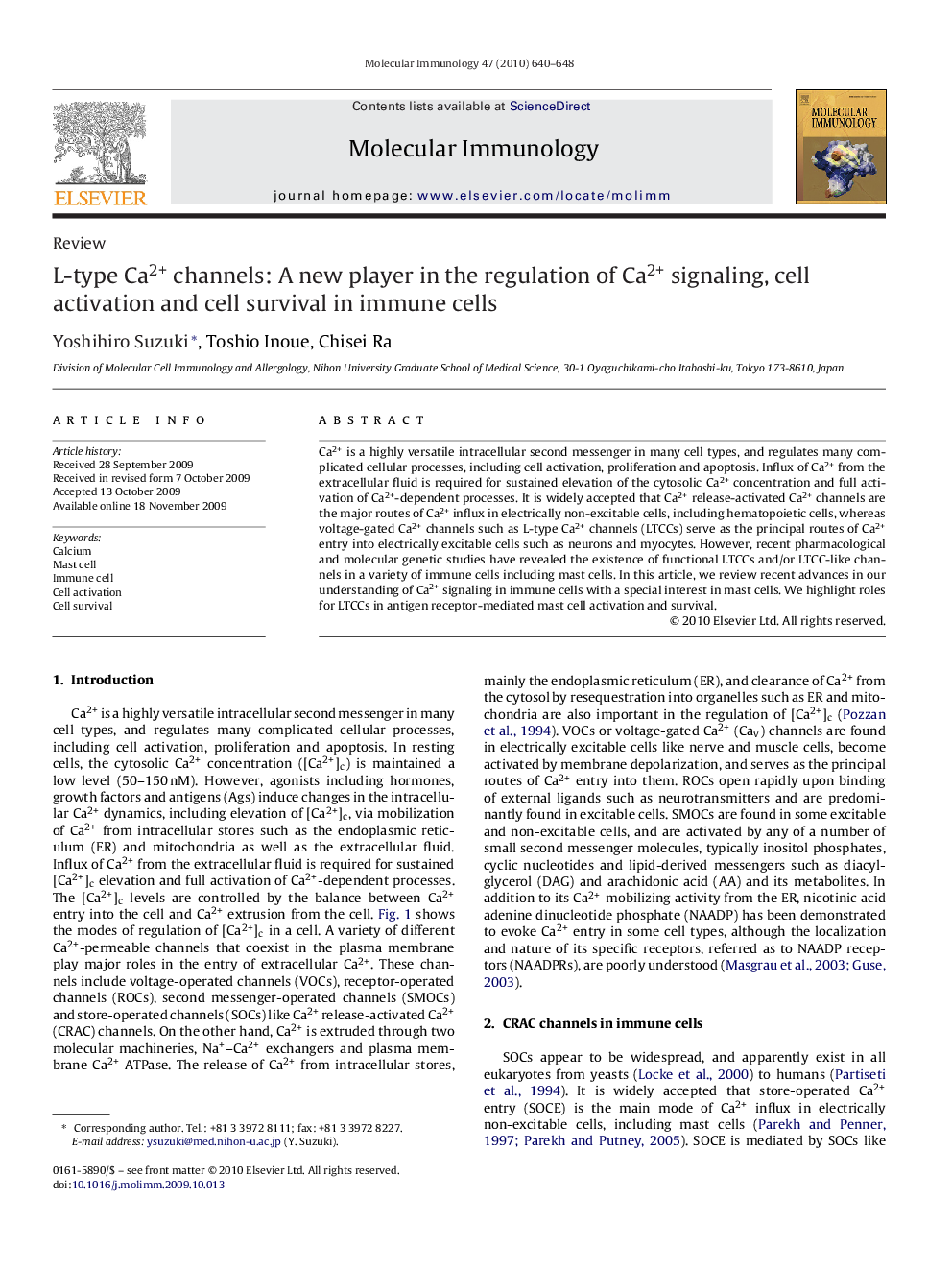| Article ID | Journal | Published Year | Pages | File Type |
|---|---|---|---|---|
| 2831807 | Molecular Immunology | 2010 | 9 Pages |
Ca2+ is a highly versatile intracellular second messenger in many cell types, and regulates many complicated cellular processes, including cell activation, proliferation and apoptosis. Influx of Ca2+ from the extracellular fluid is required for sustained elevation of the cytosolic Ca2+ concentration and full activation of Ca2+-dependent processes. It is widely accepted that Ca2+ release-activated Ca2+ channels are the major routes of Ca2+ influx in electrically non-excitable cells, including hematopoietic cells, whereas voltage-gated Ca2+ channels such as L-type Ca2+ channels (LTCCs) serve as the principal routes of Ca2+ entry into electrically excitable cells such as neurons and myocytes. However, recent pharmacological and molecular genetic studies have revealed the existence of functional LTCCs and/or LTCC-like channels in a variety of immune cells including mast cells. In this article, we review recent advances in our understanding of Ca2+ signaling in immune cells with a special interest in mast cells. We highlight roles for LTCCs in antigen receptor-mediated mast cell activation and survival.
